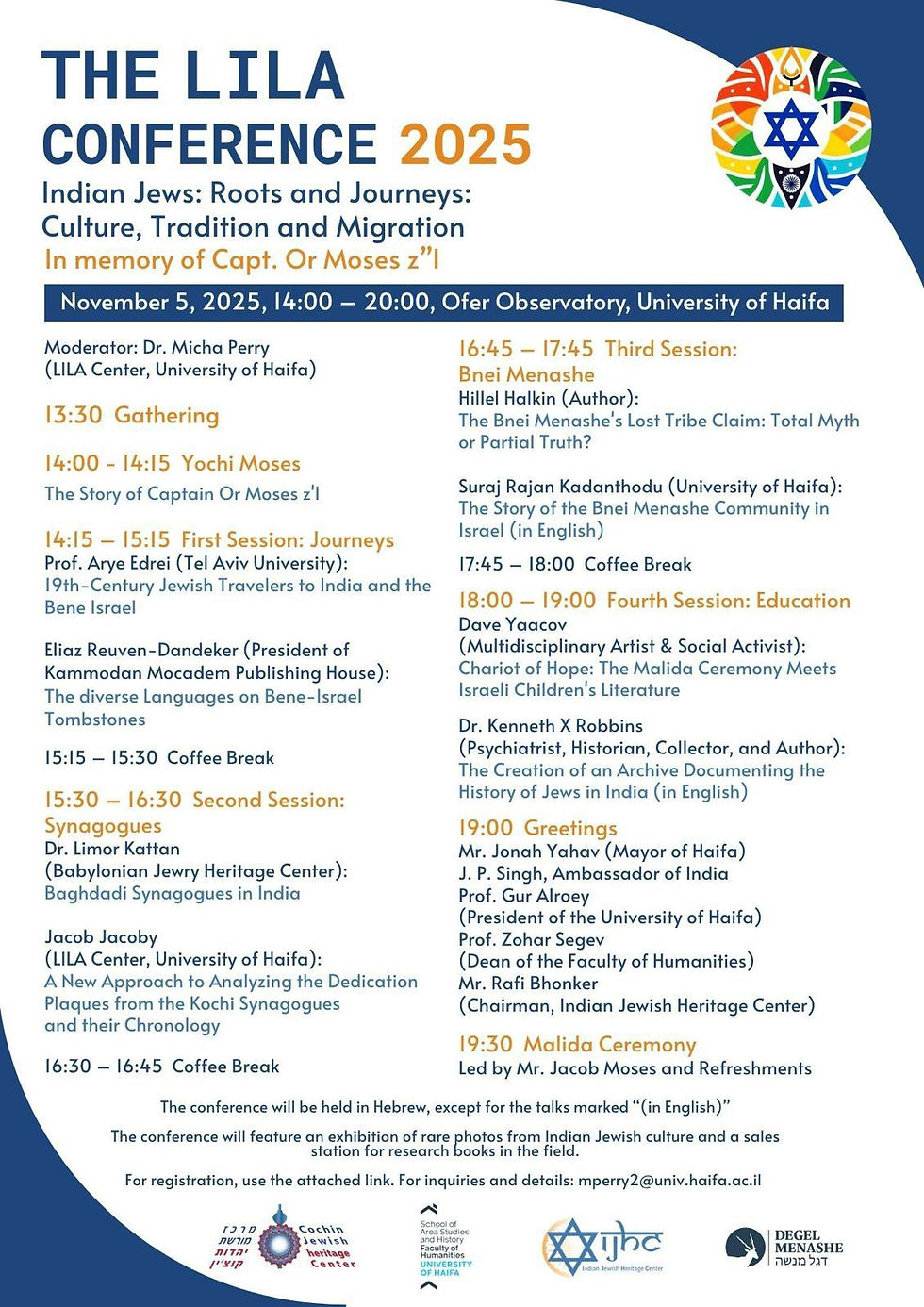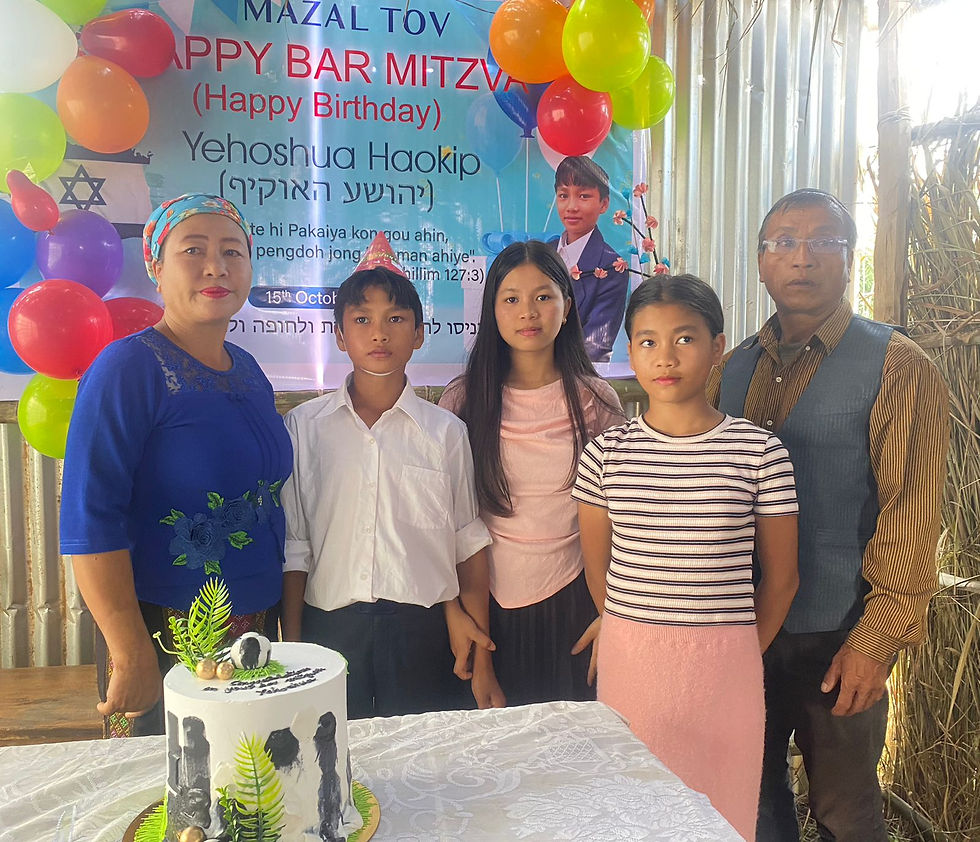
(December 15, 2025) In late November, a delegation, a first of its kind, led by the deputy director-general of the Ministry of Aliya & Absorption, Moshe Pines, consisting of 25 members, landed at the capital of picturesque Mizoram, Aizawl. This carefully selected team was composed of a diverse group of officials from various sectors, including representatives from the Foreign Ministry, the Chief Rabbinate, the Jewish Agency, and several expatriate members of the B'nei Menashe who filled crucial roles as translators and facilitators throughout the initiative. These translators were instrumental in bridging any communication gaps, ensuring that cultural

nuances were respected and understood during the interactions with the local population. The primary objective of the delegation was to engage with the B'nei Menashe community, assessing their aspirations to Aliya, the immigration process for those wishing to return to Israel. According to official sources, during the nearly two-week initiative, approximately 3,300 out of the total 5,800 community members were interviewed and vetted by the dayanim, or rabbinical judges, who are responsible for determining their commitments. This vetting process was thorough and comprehensive, aimed at ensuring that all applicants met the necessary criteria for immigration, which is a critical step in the Aliya process. The interviews conducted were not merely procedural; they were imbued with a sense of hope and anticipation for many individuals and families who have long awaited the opportunity to reconnect with their heritage, homeland and families. The dayanim engaged in discussions that delved into the personal histories of the interviewees, exploring their identities, traditions, and the unique circumstances

that have shaped their lives in this part of the region. As the delegation navigated through Aizawl, they were met with a mixture of excitement and curiosity from the local B'nei Menashe community, who expressed their gratitude for the support and attention from Israeli officials. The initiative highlighted the importance of cultural and religious identity, as well as the ongoing commitment of the State of Israel to assist Jewish communities worldwide in their quest for connection and fulfillment of their rights to return. Ultimately, this significant undertaking was not just about numbers and immigration; it was about the rekindling of a shared heritage and the reaffirmation of a collective identity that spans across millenniums, continents and generations.
The program could and should have taken place in Lamka, a town with the largest B'nei Menashe population located in the erstwhile Manipur, but the tragic and ongoing ethnic cleansing perpetrated by the Meiteis against the Kuki-Zo community since May 2023 rendered such an event entirely impossible. The
violence and unrest have created an atmosphere of fear and instability, making it unsafe for individuals to gather and participate in any organized activities in the area. This situation is particularly poignant given that a vast majority of the B'nei Menashe, a community with deep historical and cultural ties to the region, reside in this area. Their presence adds a layer of complexity and urgency to the situation, as they too have been affected by the escalating conflict. Logistics for the program had to be arranged on a grand scale, reflecting the challenges posed by the current circumstances. Organizers faced the daunting task of transporting close to

3,000 people across a treacherous terrain characterized by twisty mountain roads that extend over 350 kilometers in length. The journey is not only physically demanding but also time-consuming, often taking over 12 hours to complete. This logistical nightmare required meticulous planning and coordination to ensure the safety and well-being of all involved. To facilitate the movement of participants, a fleet of approximately 10 mini-buses and SUVs was deployed, arriving every evening and morning for a span of 9 consecutive days, excluding Shabbaths. Each vehicle was tasked with bringing interviewees from their homes to the designated gathering point, and then safely returning them back to Lamka after their participation. The commitment to ensuring that individuals could still engage in the program, despite the dire circumstances, speaks volumes about the resilience and determination of the organizers and the community members involved. The entire operation was not merely a logistical exercise; it was a testament to the human spirit's ability to adapt and persevere in the face of adversity, highlighting the importance of maintaining cultural

connections and community solidarity even amidst chaos. Those are the lucky ones. Community members from the northern reaches like Kangpokpi, Saikul, Phalbung and including Nagaland have to take a more circuitous routes covering three states, Nagaland, Assam and finally Mizoram. They begin their journey from their villages, hamlets towards the nearest railhead, Dimapur town in Nagaland which can be up to a hundred kilometers or more, taking several hours. From there they board a train, travel to Lumding in Assam where they change train to reach Sairang, near Aizawl in Mizoram. In all, it can take about 24 hours or more to reach the destination.
Despite facing both anticipated and unforeseen challenges, the mission was successfully accomplished. We extend our profound gratitude to the Ministry of Aliya & Absorption, led by Moshe Pines, and commend the Jewish Agency personnel, particularly Almog Moskowitz and Yosef Havtamo, among others, for their tireless dedication day and night to ensure its success. We also express our appreciation to the dayanim who embarked on this challenging yet spiritually noble endeavor. Together may we merit to see all B'nei Menashe in Jerusalem!








